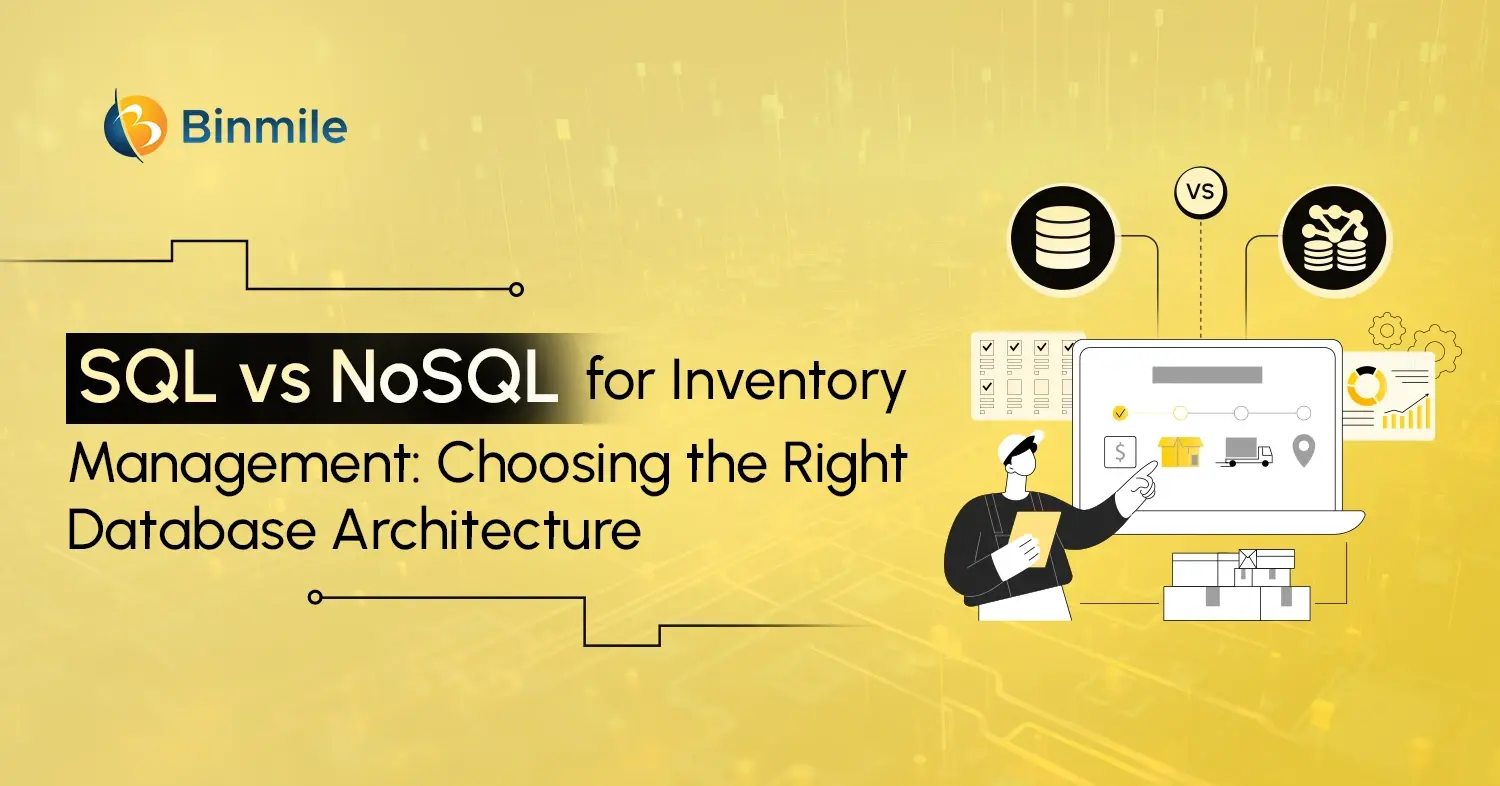A transportation management system (TMS) is a software that helps businesses manage logistics associated with the movement of physical goods by land, air, sea, or a combination of transportation modes. For a business to be successful, relevant, and credible, a lot depends on the efficient and effective movement of services, goods, and products to their end users. The logistics industry mostly manages transportation, storage, and distribution, and is responsible for ensuring a seamless supply chain management. Cloud-based technologies combined with growth in the e-commerce sector are increasing demand for TMS software. However, the industry has challenges and complexities, including increasing demand, rising fuel costs, and stringent regulations.
A TMS is designed to simplify, improve operational product management processes, improve visibility, and optimize business costs. It helps ensure the timely delivery of goods by optimising loads and delivery routes, tracking freight across local and global routes, and automating previously time-consuming tasks, such as trade compliance documentation and freight billing. As software, it does more, so if you’re interested in understanding how the TMS platform is helping businesses manage their logistics operations or how you can effectively deploy your transportation management software, then this blog is for you.
7 Ways Transportation Management Software is Revolutionizing the Industry
Transportation management software (TMS) is transforming the logistics and supply chain industries. Here are 7 key ways the transportation management system can driving innovation and efficiency:

1. Real-time Visibility and Tracking
It provides real-time updates on shipment locations, estimated arrival times, and potential delays. With real-time track and trace, you can track the movement of goods, whether shipped by land, sea, or air. Assess the efficiency of your operations and track KPIs on your TMS dashboard. This increased visibility allows for better planning and proactive problem-solving.
2. Efficient Route Optimization
Advanced algorithms and artificial intelligence in TMS analyze various factors, such as traffic, weather, and delivery windows, to determine the most efficient routes. TMS further optimizes the workflow of entire logistics operations to reduce freight costs, with prompt analysis of different routes. This optimization also lowers fuel costs, improves delivery times, and increases overall efficiency.
3. Automated Documentation and Compliance
TMS automates the creation and management of essential documents like bills of lading, customs forms, and invoices. It also helps ensure compliance with various transportation regulations, reducing errors and streamlining processes. It further helps connect customers with carriers, negotiate more competitive carrier rates, etc.
4. Data Analytics and Reporting Modern
It collects data generated by sources, such as IoT sensors, carrier information, purchase orders, general ledger, GPS tracking data, etc. With these valuable insights into performance metrics, cost analysis, and trends, due to this data-driven approach, businesses can perform better decision-making and choose continuous improvement.
5. Carrier Management and Selection
TMS platforms often include features for managing carrier relationships, comparing rates, and selecting the best options for each shipment. It lets you understand and manage the relationships with these carriers to ensure goods are moved efficiently, cost-effectively, and reliably from origin to destination. This leads to cost savings, improved service quality, and the planning and execution of the physical movement of goods.
6. Mobile Accessibility
Many TMS solutions now offer mobile apps, allowing drivers, managers, and customers to access critical information and perform tasks on the go. Mobile-ready features like barcode scanning, electronic Proof of Delivery (ePOD), and real-time tracking are essential for your business to maintain visibility and control over your logistics processes. This mobility enhances communication and responsiveness throughout the transportation process.
7. Improves Supply Chain Efficiency
Ensures transparency in the supply chain with greater visibility into inbound material needed to fill shipment orders. Further, the ability of TMS to instantly locate items, whether in transit or buried somewhere in the warehouse, results in effective warehouse management for logistics businesses.
What is Transportation Management Software?
Well, transportation management software (TMS) is a subfield of supply chain management to help companies plan, execute, improve, and optimize the transportation of incoming (procurement) and outgoing (shipping) goods. This logistics platform ensures that the shipment of goods aligns with regulatory compliance and is properly documented. It is an intermediary between an enterprise resource planning (ERP) and a warehouse module.
When integrated with ERP supply chain management software, TMS provides actionable insights into daily transportation operations, trade compliance data, and documentation. It ensures that freight and goods are maintained in a timely fashion by streamlining the shipping process and simplifying transportation operations in transit via air, land, or sea. Companies can opt for a standalone TMS or integrate it with their existing cloud or on-premises ERP and supply chain management systems for a more cohesive and efficient workflow.
Key Processes of Transportation Management Software in Logistics
- It defines the most optimal transport schemes based on the given parameters, including transport costs and lead time
- It enables the execution of transportation plans, like carrier dispatching
- It maintains follow-up regarding transportation, such as tracking transport activities from shipment to arrival and customs clearance etc.
- It acts as a key performance indicator (KPI) regarding how transportation functions
Streamline operations and reduce costs with our custom transportation management software, designed to optimize logistics and improve efficiency.

Real-World Examples of Transportation Management Solutions
- Oracle
- Descartes
- 3Gtms
- Cloud Logistics
- SAP
- Transplace
- MercuryGate
- Trimble
5 Compelling Features a Transportation Management Software in Logistics Should Have
Whether you’re a small startup or an established enterprise, we’re also listing the top features your transportation management software must have.

#1 Powerful Optimization System
To have a transportation management system that can help you with plans regarding terrestrial transport routes, you must have efficient delivery management. This ensures mapping out the best route plans to save you costs and maximize your fleet’s capacity. Also, it should feature load optimization, route optimization, freight management, etc.
#2 Business Intelligence Capabilities
Leveraging intelligent capabilities and AI in transportation helps you optimize workflows and identify improvement areas based on the mission-critical transportation intelligence data it provides. Maximizing BI-powered TMS solutions would mean gaining insights into potential traffic delays and measuring the effects of route changes on overall fleet performance.
#3 Real-Time Track And Trace Capabilities
Proactive feature of track and trace capabilities for the physical movement of products, with a comprehensive update on each stage of the transportation process. Most importantly, the TMS must help you with accurate monitoring and tracking of the shipment, coupled with automated notifications for products in transit.
#4 Advanced Route And Load Planning
You must have TMS products that go beyond offering rudimentary route planning for logistics operations. Since they’re not advanced enough to serve your logistics needs properly, especially when you need insightful route planning, seeking a reputable transportation and logistics software development company can help. They can help you build a robust TMS with advanced route and load planning features, with suggestions for a vehicle based on the characteristics of the load, which can be facilitated by an advanced TMS.
#5 Automated Load Planning & Job Assignments
Both tasks are time-consuming and seriously prone to errors, ensuring your TMS platforms offer automated load planning and job assignment capabilities to streamline these critical operations. This automation minimizes human errors, maximizes asset utilization, and ensures seamless delivery. Therefore, include key factors like vehicle capacity, driver availability, and delivery constraints to more efficiently allocate loads and assign jobs to the proper resources.
Also Read: Top Fleet Management Technologies for Businesses
Ready to enhance your logistics or supply chain efficiency? Our software development services provide the perfect solution for seamless, scalable operations.

Closing Statement
Transportation Management Software (TMS) has emerged as a transformative force in the logistics industry. It’s playing an instrumental role in simplifying and improving operational product management processes for logistics businesses. By automating processes, improving visibility, and optimizing costs, TMS empowers businesses to streamline their operations, achieve cost savings, and achieve greater efficiency.
If you are impressed with the significance and benefits of TMS and are looking for a futuristic solution built for your logistics business, choose Binmile. A globally renowned digital transformation company known for providing top-notch transportation management solutions services. It helps businesses in the field of logistics and supply chain risk management succeed and stay competitive in their niche.
Frequently Asked Questions
TMS contributes to cost savings by optimizing routes, reducing fuel consumption, minimizing idle time, improving resource utilization, and facilitating better negotiation of freight rates. These efficiency improvements lead to reduced operational costs for transportation.
Transportation Logistics Software is a technology solution designed to streamline and optimize various processes within the transportation and logistics industry. It encompasses functionalities such as route planning, shipment tracking, inventory management, and overall logistics coordination.
Transportation management is crucial for businesses as it helps optimize the movement of goods, reduce transportation costs, improve delivery efficiency, enhance customer satisfaction, and contribute to overall supply chain effectiveness.
A cloud-based Transportation Management System (TMS) offers several benefits for businesses looking to streamline logistics and transportation operations:
- Eliminates the need for expensive on-premise hardware and reduces maintenance costs.
- Easily adapts to business growth and fluctuating transportation needs
- Provides instant access to data from anywhere, enabling better decision-making.
- Enhances communication between shippers, carriers, and suppliers.
- Ensures access to the latest features and security enhancements without manual intervention.
- Offers robust security protocols and cloud storage for data protection.
- Seamlessly integrates with other business systems like ERP, CRM, and WMS.
- Provides advanced insights for optimizing routes, costs, and performance.









